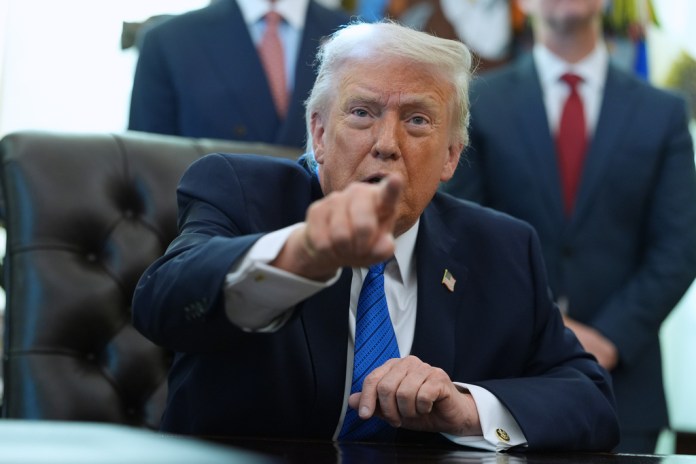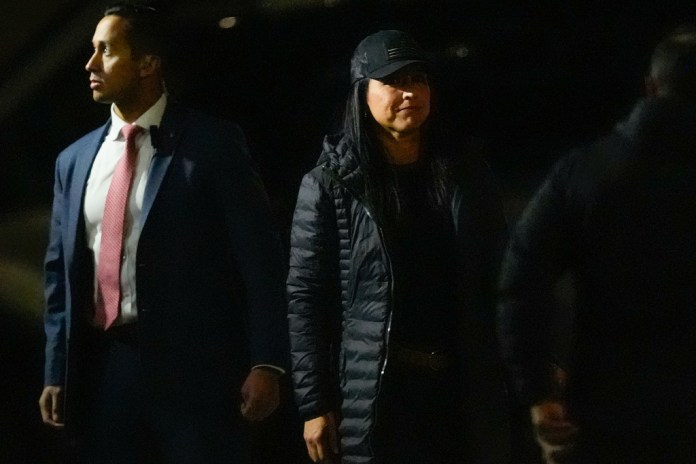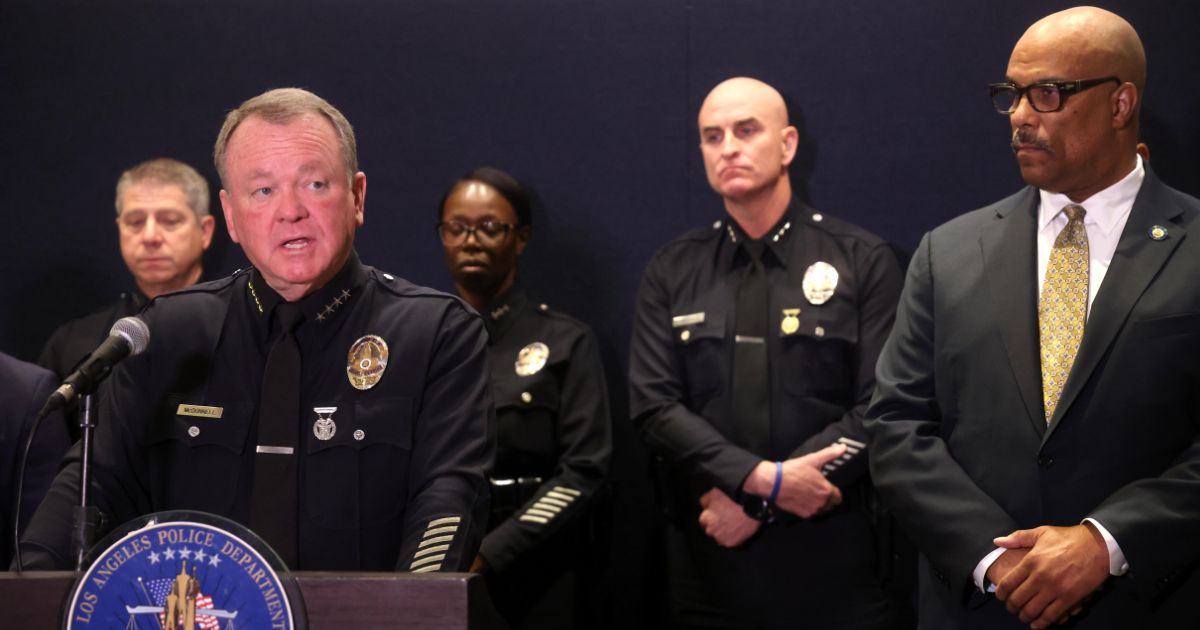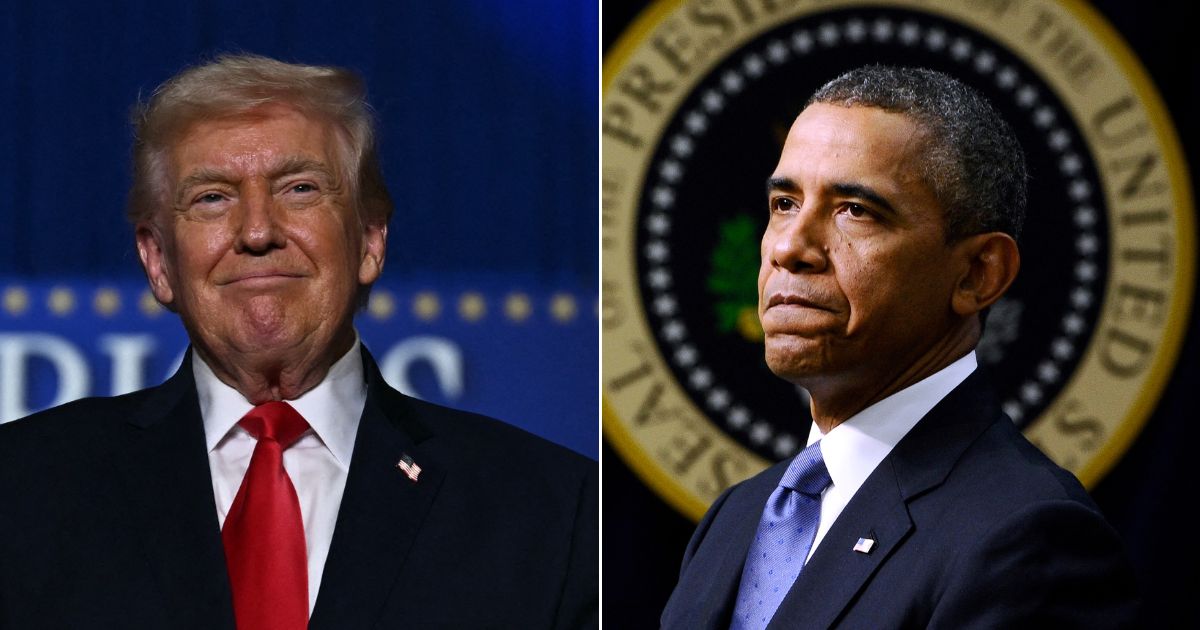Why Trump’s DC police takeover is likely to avoid legal hurdles
The article discusses President Donald Trump’s announcement to temporarily take federal control over law enforcement in Washington,D.C.,including the deployment of the D.C. National Guard and federalizing the Metropolitan Police Department (MPD). Trump invoked Section 740 of the Home Rule Act of 1973, wich allows the president to assume control of the MPD during emergencies. This legal authority gives him up to 48 hours of control, extendable to 30 days with congressional notification.
The D.C. National Guard differs from state National guards in that the president is its commander-in-chief, not the local mayor, allowing Trump to deploy troops without calling them into federal service.This distinction exempts the D.C. National Guard from restrictions of the Posse Comitatus Act, which limits military involvement in law enforcement, possibly avoiding some legal hurdles faced in other troop deployments like in Los Angeles.
While some local officials and advocacy groups have expressed concern and signal potential legal challenges, the article suggests Trump’s actions are backed by clear statutory authority. Though, any attempt to extend federal control over the MPD beyond 30 days without congressional approval could provoke lawsuits. Trump’s federal takeover of D.C.’s police is positioned as legally sound but remains politically contentious.
Why Trump’s DC police takeover is likely to avoid legal hurdles
President Donald Trump announced his plan Monday to take over law enforcement in Washington, D.C. temporarily, and unlike most of his official actions, the laws he cites make it unlikely that he will succumb to a legal fight.
Trump’s authority to combat crime in the District of Columbia by asserting federal control is clearly outlined in law, but certain time and use limitations apply, which could open the door to lawsuits down the line.
How Trump is taking over DC law enforcement
Trump issued a pair of orders Monday that authorized the deployment of the D.C. National Guard and instituted federal control of the Metropolitan Police Department.
For the deployment of the National Guard, Trump authorized the use of the troops as commander in chief of the District of Columbia National Guard. While the commanders in chief of the National Guard in states are governors, the D.C. National Guard’s commander in chief is the president, rather than the mayor of Washington, D.C.
For the federal takeover of the Metropolitan Police Department, the president invoked section 740 of the Home Rule Act to take emergency control of the local police department.
The Home Rule Act, which was passed in 1973, gave D.C. residents more direct control over local affairs, including the creation of an elected mayor of D.C. and an elected city council. The law divested some of the federal government’s direct authority in overseeing the district’s governance, but it also included a provision allowing for the president to take control of the police force if he “determines that special conditions of an emergency nature exist which require the use of the Metropolitan Police force for Federal purposes.”
Section 740 of the Home Rule Act gives the president 48 hours of control of the Metropolitan Police Department, unless he has “notified the Chairmen and ranking minority members of the Committees on the District of Columbia of the Senate and the House of Representatives” of his intent to federalize the police force. If he gives the necessary notice to the relevant chairmen, the president may exert federal control of the MPD for 30 days before requiring an act of Congress for further extension beyond that.
Trump issued his order declaring that “special conditions of an emergency nature exist”, requiring him to take control of the D.C. police force on Monday morning and allowing him to take control of the MPD.
Federal takeover of DC law enforcement vs LA troop deployment
The deployment of the National Guard to D.C. by Trump has invited some comparisons to the president’s deployment of the National Guard to quell protests that turned violent in Los Angeles in June, but there are key differences between the two deployments.
Trump’s deployment of the National Guard in Los Angeles, which is facing a pair of legal challenges in federal court, is facing a trial this week. California officials accuse the Trump administration of violating the Posse Comitatus Act, a law prohibiting troops from being used for regular law enforcement activities. The Trump administration has denied that its deployment of troops to Los Angeles violates the law, arguing the National Guardsmen were deployed to protect federal property and officers amid unrest over federal immigration operations in the city.
Trump’s use of the National Guard in Washington, D.C., differs from previous uses in two ways: the locations to which troops could be deployed and the force used.
Much of the District of Columbia is federally owned and operated property, including the National Mall, the U.S. Capitol complex, and various monuments, parks, and squares scattered throughout the city. The federal properties around the city are the responsibility of the federal government. Unlike Los Angeles, where there are few federal properties, they can be more directly policed by federal authorities.
Another factor that could work in Trump’s favor is that the Justice Department has recognized the D.C. National Guard for decades as having wider federal authorities for regular law enforcement than other National Guards.
A legal opinion issued by the Justice Department under President George H.W. Bush in 1989 found that because the D.C. National Guard’s usage in D.C. is not being called into federal service and instead acts as a militia for the district, it is not subject to the restrictions of the Posse Comitatus Act, which bar regular law enforcement. Because the president is already the commander in chief of the D.C. National Guard, he does not need to call up troops into federal service but can activate them at the militia level.
Have officials hinted at coming legal challenges?
Washington, D.C., Attorney General Brian Schwab said Monday his office is “considering all of our options and will do what is necessary to protect the rights and safety of District residents.”
Democracy Forward, a left-wing law group that has launched various lawsuits against the Trump administration, also said it was “monitoring this situation and considering legal options” after Trump’s Monday announcement.
While Trump’s federal takeover of the Metropolitan Police Department is authorized in the D.C. Home Rule Act, any bid to extend it beyond 30 days without congressional authorization would likely result in a lawsuit.
Washington D.C. Mayor Muriel Bowser, at a press conference on Monday, deferred to Schwab’s statement but also noted she would comply with the invocation of the Home Rule Act provision, giving Trump emergency control. She acknowledged that city officials could contest the emergency declaration federalizing the D.C. police force, but conceded the president’s authority “is pretty broad” under the statute.
TRUMP FEDERALIZES DC POLICE AND ACTIVATES NATIONAL GUARD TO COMBAT CRIME: ‘TAKE OUR CAPITAL BACK’
D.C. Councilmember Charles Allen also conceded in a statement that the president’s “unnecessary, unwarranted” and “dangerous escalation of power” was being done “simply because he can.”
While the DOJ’s legal opinion on the D.C. National Guard’s deployment has stood for years, it could be tested by a lawsuit challenging the deployment. The D.C. National Guard has been deployed several times in recent years, including after the Capitol riot on Jan. 6, 2021, but the provision of the Home Rule Act, taking federal control of MPD, has never been invoked.
" Conservative News Daily does not always share or support the views and opinions expressed here; they are just those of the writer."




